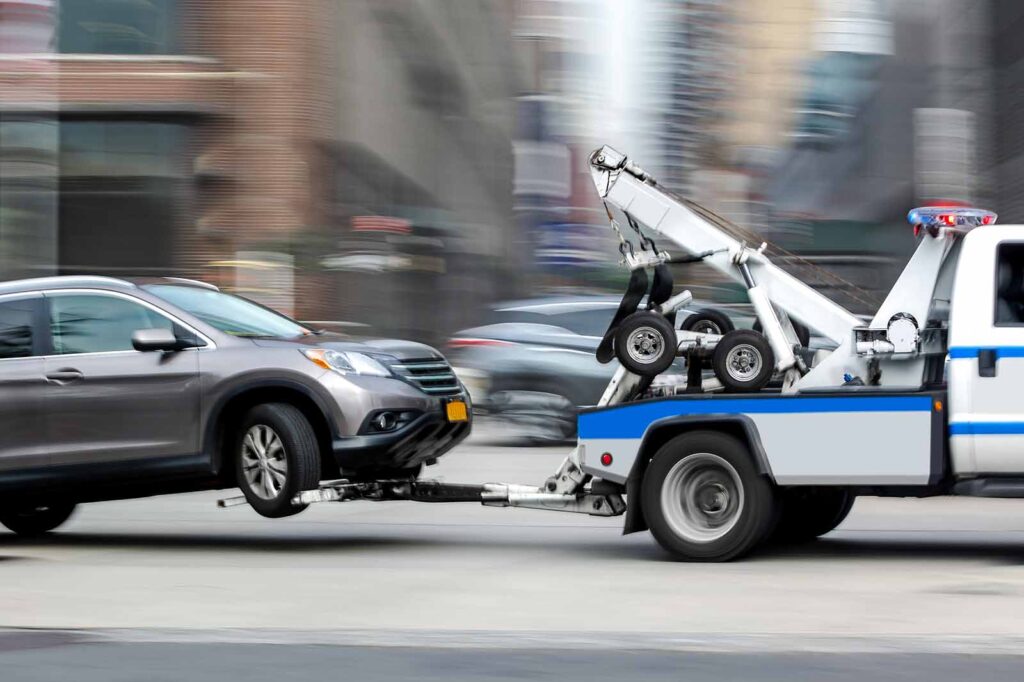
When it comes to transporting a vehicle across state lines, the choice between towing and auto shipping can significantly impact the cost, convenience, and condition of your vehicle upon arrival. Each method has its distinct advantages and drawbacks, making it crucial to understand which option aligns best with your needs. Towing, often seen as a straightforward solution, involves moving a vehicle using a tow truck. While this can be cost-effective for short distances, it may come with risks such as vehicle wear and tear and exposure to the elements. On the other hand, auto shipping offers a more specialized approach to cross-state transport, with options ranging from open to enclosed carriers. This method generally provides better protection for your vehicle and more flexibility in terms of logistics.
Summary
Understanding Towing for Cross-State Vehicle Transport
What is Vehicle Towing?
Vehicle towing involves using a tow truck to move a vehicle from one location to another. This method typically requires a flatbed or dolly to secure the vehicle, especially for long distances. Tow trucks are designed to handle various types of vehicles, including those that are non-operational or damaged.
Advantages of Towing
Towing can be a practical choice for short distances or when transporting a non-operational vehicle. It’s often more cost-effective compared to auto shipping, especially for local or regional moves. Additionally, if you need to transport a vehicle quickly, towing may offer more immediate availability and flexibility.
Disadvantages of Towing
While towing can be cost-effective, it comes with potential drawbacks. The vehicle may be exposed to weather conditions, leading to possible damage. Long-distance towing can cause significant wear and tear, and there’s a risk of mechanical issues if the tow truck isn’t properly maintained. Furthermore, towing might not be suitable for luxury or classic cars that require additional protection.
Exploring Auto Shipping for Cross-State Transport
What is Auto Shipping?
Auto shipping involves transporting a vehicle using a specialized carrier, such as an open or enclosed trailer. Open carriers are common and cost-effective, but they expose the vehicle to the elements. Enclosed car carriers, on the other hand, offer superior protection, making them ideal for high-value, classic, or luxury vehicles.
Benefits of Auto Shipping
Auto shipping provides several advantages over towing. Vehicles are typically transported in a way that minimizes exposure to weather and road debris, which helps in preserving their condition. Shipping companies often offer insurance coverage, adding an extra layer of protection against potential damage. Additionally, auto shipping can be more efficient for long distances, with professional carriers handling logistics and ensuring timely delivery.
Drawbacks of Auto Shipping
Despite its benefits, auto shipping can be more expensive than towing, especially for enclosed transport. There may also be longer wait times due to scheduling and routing. It’s important to factor in these potential delays when planning your transport needs. Moreover, while insurance is often included, there may be additional costs for coverage upgrades.
Comparing Towing and Auto Shipping
Cost Comparison
When comparing towing and auto shipping, cost is a major factor. Towing is generally more affordable for short distances or when moving a non-operational vehicle. However, for longer distances, the costs can accumulate due to fuel, mileage, and potential wear and tear on the vehicle. Auto shipping, while typically more expensive, offers various pricing options based on the type of carrier and distance. Enclosed carriers, for example, come at a premium but provide added protection.
Vehicle Safety and Protection
Safety and protection are critical when choosing between towing and auto shipping. Towing exposes the vehicle to road conditions and weather, which can lead to potential damage. Auto shipping, especially with enclosed carriers, offers better protection from the elements and road debris. Additionally, many auto shipping services include insurance coverage, which can be beneficial if any issues arise during transit.
Convenience and Time
Convenience and time can greatly influence your decision. Towing can be a quick solution for local or short-distance moves but may not be ideal for long-haul transport. Auto shipping companies often have established routes and schedules, potentially providing more reliable delivery times. However, the process can take longer due to scheduling and transportation logistics.
Case Study: Successful Cross-State Transport with Navi Auto Transport
Case Study Overview
In a recent successful transport scenario, Navi Auto Transport managed the cross-state shipping of a high-end luxury vehicle from New York to Florida. The client required a quick and secure transport solution to ensure their vehicle arrived in pristine condition.
Challenges and Solutions
The primary challenge was to ensure the luxury vehicle was protected from potential damage during transit. Navi Auto Transport chose an enclosed carrier to provide superior protection against weather and road debris. Additionally, tight scheduling constraints meant coordinating pickup and delivery times efficiently. By leveraging our network of reliable carriers and employing real-time tracking, we met the client’s deadline without compromising vehicle safety.
Results and Client Feedback
The vehicle arrived on schedule and in excellent condition. The client was highly satisfied with the service, praising the meticulous care and professional communication throughout the process. This case exemplifies our commitment to delivering top-tier service, even under tight deadlines and with high-value vehicles.
How We Solve Common Transport Issues
Problem Identification
Cross-state vehicle transport often presents several challenges, including vehicle damage, delays, and logistical issues. Common problems include exposure to adverse weather conditions, unexpected delays due to scheduling conflicts, and potential mechanical issues during transit.
Solutions and Examples
At Navi Auto Transport, we address these issues through a combination of strategic planning and proactive measures:
- Vehicle Damage: We use enclosed carriers for high-value or delicate vehicles to shield them from weather and road debris. Additionally, we conduct thorough inspections before and after transport to document and address any issues promptly.
- Delays: To mitigate scheduling conflicts, we offer real-time tracking and updates to keep clients informed. Our team coordinates with multiple carriers to ensure timely pickups and deliveries, reducing the risk of delays.
- Mechanical Issues: For non-operational vehicles or those with known mechanical issues, we provide specialized equipment and experienced drivers to handle the transport safely. We also offer additional insurance options to cover potential risks during transit.
